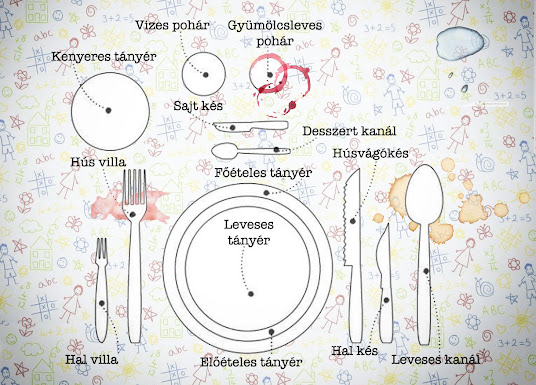Is the parent the clapper of the alarm bell, or its ringing in the online world?
Marching into the kids' room, accompanied by a booming paternal bellow, I pulled a 'Pásztor boys' on them and straight-up confiscated the tablet they were watching under the duvet, liberating the next generation from its clutches. My rage flared less because of their actual misdemeanour, and more because of my own cluelessness. I couldn't for the life of me come up with a snappy, convincing answer as to why they shouldn't just be endlessly faffing about on the internet unsupervised. Only a load of clichés sprang to mind, which would have sounded hollow even when delivered with the full force of dad authority. Trying to reason with a three, seven, and nine-year-old, cutting through their emotional storm, proved a proper challenge, though you don't always have to justify absolutely everything, do you?
Thanks to the march of technology, using media devices has flung open channels where kids' eyes and ears are often left defenceless. Sure, info-communication gadgets like computers, smartphones, tablets, and TVs become rivals, even partners, to school and family socialisation, because they impart knowledge, offer behavioural patterns, and shape their value systems. But in the relentless ratings race, kids can easily get swept away, falling prey to the internet's nastier effects. It's not the devices themselves that pose the danger, but the world they create, which can foster an emotionally dependent relationship. According to research neurologist József Janszky, currently up to 10% of young people develop internet addiction by adolescence. Crikey.
Back in 1995, Ivan Goldenberg prised open Pandora's Box with a sarcastic joke, when he published a post about an addiction he'd made up: Internet Addiction Disorder (IAD), even outlining its diagnostic criteria. He was soon swamped with comments from people who recognised themselves and were begging for help. Goldenberg thought they were just winding him up and offered them online group sessions, little suspecting how much the avalanche he'd started would become a permanent fixture of our daily lives.
Smartphones, social media, and the internet generally have brought with them new habits and behaviour patterns. Their role in everyday life throws up a load of questions: the reward hit linked to content, the continuous nature of their use, constant checking, the dangers of anonymity, and so on.
Research proves that kids tend to click first and correct later. Hiding behind their online persona, they often act more immaturely, less thoughtfully, losing control faster than they otherwise would. Addiction is just one extreme end, where everything from genetic factors can play a part, but when it comes to a child's internet use, the parental example is primarily key. So, yeah, I need to start the self-reflection with myself. I wake up to my phone alarm, scroll through Facebook, buy something online while I'm eating, reply to a couple of texts while watching telly, and upload dinner to Insta... There are some routine activities you just can't help but do. Maybe these are just pseudo-dilemmas, about which we mostly think the same thing: Nothing. If I showed my great-grandparents my phone, they'd be absolutely gobsmacked that all the world's knowledge, in every language, is available in seconds from a tiny device. Just don't let them ask what I actually use it for: liking daft little videos.
The situation's also tougher because it's not only socially accepted, but expected, that you own and use one. If you don't, you've got to brace yourself for condescending remarks and snide comments, and you can't even log into, or get into, a lot of places. Smartphones and the internet are basic kit, essential for work, and come with tons of benefits. Yet, I still have to square up with myself: what's my relationship with the digital world like? It's worth mentally mapping out and consciously realising how much of my time the internet, phone, tablet, and computer gobble up, and how much they turn my life upside down. If I wanted to stop, what would I feel, what excuses would I make? Do I use my phone at the table, eat in front of the computer, have to constantly glance at some social media, react instantly to every flash? Do I only get it out to text a message or look up info, or when I'm bored, or even when I've actually got other stuff to do? Do I get more irritable, more tense, if my phone's not with me, or the computer's off, and do I feel like I'm missing out on important events, news (hello, FOMO)? Is it a problem for me, and for the family, how much time I spend hanging about on the net?
Psychologists agree that total digital abstinence isn't the solution, because computers and phones can't be permanently switched off from one's life. But it's absolutely vital that we use our devices consciously, set boundaries if needed, and we can even test this out with a short digital detox. If we control ourselves well, only then can the same be expected from our children, who often simply follow our example without needing warnings. Of course, the most important thing is parental attention, quality time spent together, conveying acceptance, and, well, giving the most love.
My lads and I decamped to the kitchen to make pancakes (because everyone loves a good pancake), and we took the tablet with us, because that's where they found the recipe. My only job was to get the jam down from the high shelf and snatch the tablet away from the spilling flour.










